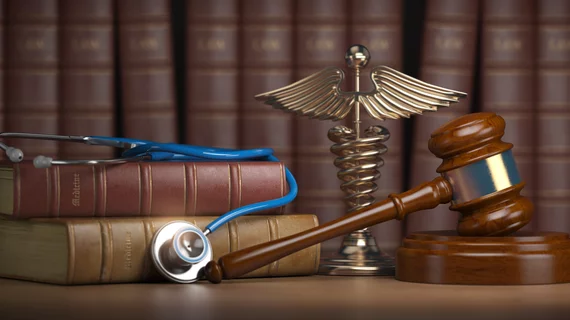Cardiologist’s legal fight against fraud conviction may be heard by Supreme Court
The long legal saga of Richard Paulus, a Kentucky cardiologist accused of performing unnecessary cardiac procedures, appears to still be going strong.
Paulus, a longtime employee of King’s Daughter Medical Center (KDMC) in Ashland, Kentucky, was found guilty of healthcare fraud in 2016. According to the U.S. Department of Justice, he performed numerous unnecessary stent procedures, fraudulently billing Medicare, Medicaid and private insurers, from 2008 to 2013.
In 2019, he was sentenced to five years in prison and ordered to pay nearly $1 million.
That was not the end of the story, however. There have been multiple appeals and some potential new evidence was even discovered, leading to the 2021 announcement that there would be a new trial.
Now, according to new reporting from the Daily Independent in Kentucky, the Sixth Circuit Court of Appeals has denied KDMC’s petition that would have prevented the disclosure of certain records related to procedures Paulus performed during his time there. Those records originally became a focus of the ongoing investigation because they included a letter believed to show that Paulus did not perform as many unnecessarily procedures as originally believed — and now federal prosecutors are hoping to review these documents in full.
The Daily Independent also reported that the U.S. Supreme Court could potentially review this case. The chances are slim — less than 1%, according to reporter Henry Culvyhouse — but it is certainly possible that one of cardiology’s biggest ongoing court cases will be reviewed by the most powerful court of them all.
Read more from the court filing
Related Economics Content:
Cardiology’s average salary climbs to $490k, No. 3 among all specialties
Australian tech company opens new US office, eyes FDA approval for AI CAD solution

